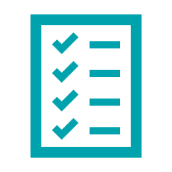What Is Enterprise Risk Management?
Enterprise risk management (ERM) programs provide a clearer view of how various risks — from internal operations to global disruption — connect, intersect, and influence your ability to meet strategic goals. A well-structured ERM program clarifies where vulnerabilities exist and why, supporting better decisions and identifying not only threats but opportunities.
Why ERM Matters for Strategic Planning
An ERM program is most effective when integrated with strategic planning. It helps leadership assess whether key decisions — program initiatives, investment, or expansions — align with the organization’s risk appetite and capacity for uncertainty.
An effective program requires structure, discipline, and commitment from the boardroom to the front lines. Risk profiles differ based on size, sector, and strategic priorities. But in all cases, an ERM program should evolve alongside your strategy and operating environment.
AAFCPAs helps clients develop and strengthen ERM programs tailored to their goals, governance structure, and risk environment.
Common Risk Categories
Strategic Risks
- Market shifts
- Mergers and acquisitions
- Reputational harm
Operational Risks
- Technology failures
- Supply chain disruption
- Talent shortages
Financial Risks
- Internal controls
- Fraud
- Concentrations
- Funding uncertainty
Compliance Risks
- Regulatory changes
- Noncompliance penalties
- Privacy violations
IT Environment Risks
- Cybersecurity threats
- Use of AI
Emerging Risks
- Tax law changes
- Environmental, Social, and Governance (ESG)
Clarity Begins with Strong Risk Ownership
Strong ERM programs begin with clearly defined ownership of risk across every corner of the enterprise. At AAFCPAs, we help you identify and empower dedicated leaders responsible for tracking exposures, monitoring controls, and maintaining accountability for their own risk domains. With clear ownership, your organization can spot emerging issues early and respond deliberately — not reactively.
A risk committee helps boards of directors and leadership fulfill oversight responsibilities by ensuring accountability for all appropriate risk categories. We guide in the formation of a cross-functional risk committee that brings structure and perspective. Committee members don’t need to be subject-matter experts in every area; they need a broad understanding of risk and a mandate to oversee the organization’s posture as a whole. With the right structure in place, leadership can know at a glance where the highest exposures exist and whether current controls align with your risk tolerance.
Through training and support, we help risk owners and committee members build fluency in assessing threats while using shared terminology and practical tools. This work doesn’t stay on paper. It filters into day-to-day operations, influencing culture, informing decisions, and reinforcing trust across teams.
Our Enterprise Risk Management Consulting Approach
Insight That Drives Oversight: AAFCPAs helps clients develop and strengthen ERM programs tailored to their goals, governance structure, and risk environment.

Cross-Enterprise Visibility
We help you map potential risks across departments and functions, clarifying how each area contributes to enterprise-wide resilience.

Defined Risk Ownership
We guide you in assigning clear risk owners and empowering leaders to monitor, report, and respond to risks within their domain.

Committee Structure and Training
We help you form or advise your risk committee and train leaders to speak a shared language around risk — encouraging consistent, confident decision making.

Tailored, Right-Sized Risk Assessment
When a full ERM program isn’t feasible, we deliver focused, high-value assessments to inform key decisions and strengthen oversight within limited scope.

Objective, Unbiased Guidance
As a neutral third party, our only role is to provide clarity and structure that support your strategy.
Support That Scales with You
AAFCPAs offers adaptable solutions to fit your organization’s goals, structure, and readiness. Whether launching a full ERM program or strengthening oversight in specific areas, our approach brings rigor without rigidity.
We train your team to sustain the process, from identifying strategic and operational risks to tracking key indicators and escalating concerns appropriately. Common risk areas include cybersecurity, regulatory compliance, talent/knowledge retention, and strategic disruption. AAFCPAs helps leadership teams identify and prioritize what matters most and respond with clarity.
Let’s Connect

John Buckley

Vassilis Kontoglis

Lisa Whittemore
Contact Us
Find out how we help leaders stay ahead of evolving risk. A firm representative will reach out to you within one business day. Looking for additional ways to reach us? Visit our Contact Page. >>
